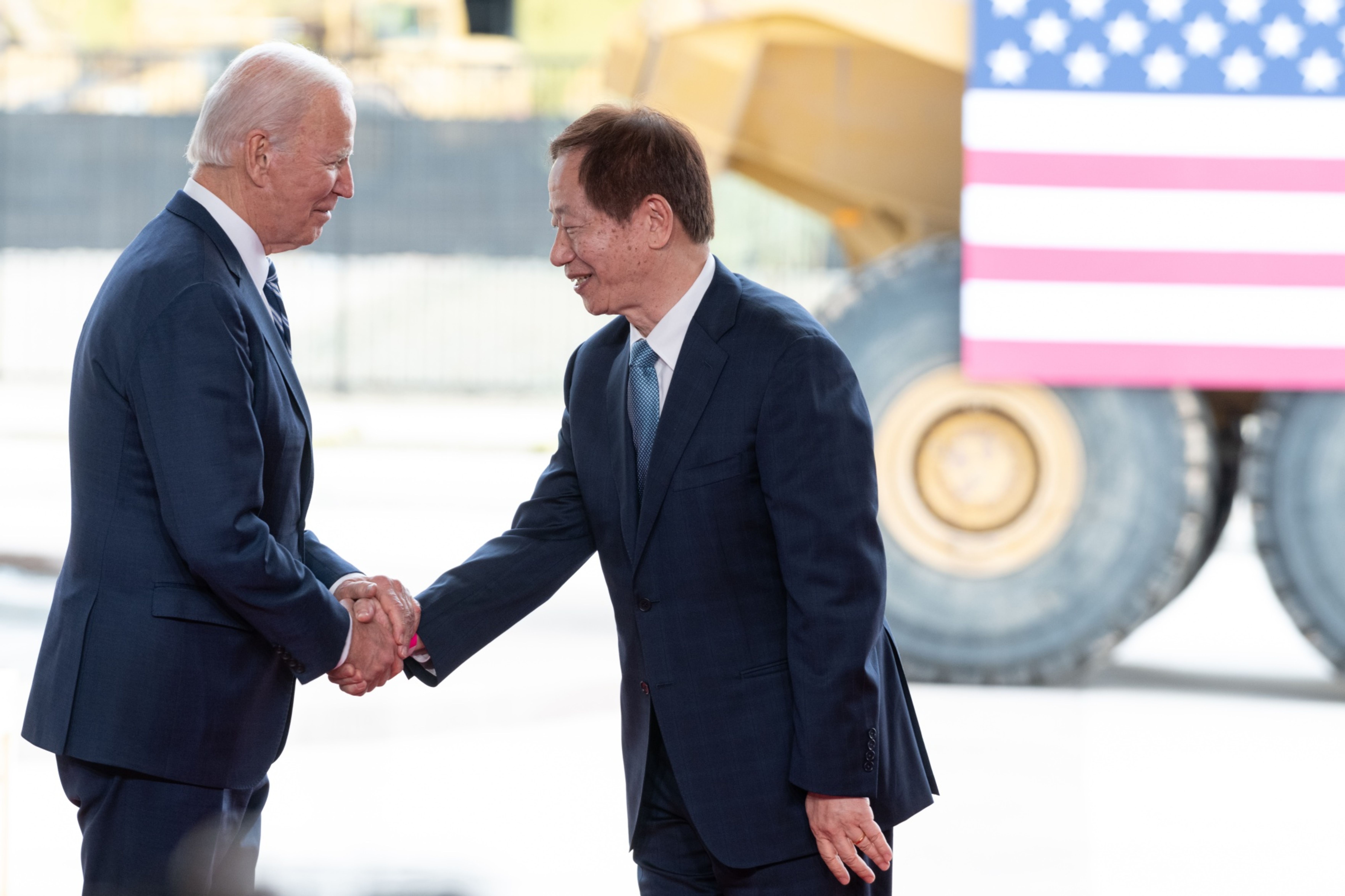Introduction
In the intricate world of semiconductor manufacturing, delays and challenges are not uncommon. Taiwan Semiconductor Manufacturing Co., Ltd. (TSMC), one of the leading chip manufacturers globally, has recently grappled with setbacks in its ambitious TSMC’s Arizona Fab project.
However, amidst these hurdles, there are glimmers of progress and strategic maneuvers that underscore TSMC’s resilience and determination to overcome obstacles.
TSMC’s foray into the United States with its Arizona fabs, initially announced in 2021, has encountered its fair share of delays.
Initially slated for production of 4nm and 3nm semiconductors, the project faced setbacks attributed to talent shortages and other sourcing challenges.
Delays announced in July 2022 and further in January 2024, pushed back the timelines significantly, raising concerns about the future of semiconductor production in the region.
Follow us on Linkedin for everything around Semiconductors & AI
The Journey of TSMC’s Arizona Fabs

TSMC’s Arizona journey has been one of ambitious plans, initial delays, and recent progress. Here’s a breakdown:
Big Investment: It all started in May 2020 with a significant announcement. TSMC pledged to invest $12 billion to build a fab in Arizona. This marked a major shift, bringing their leading chip production technology to the US.
Project Expansion: By December 2022, TSMC upped the ante. They announced a second fab, boosting the total investment to a whopping $40 billion. This became the largest foreign direct investment in Arizona’s history.
Construction Progress: There were initial delays, but things seem to be back on track. Construction has progressed steadily, with videos showing significant advancement
Focus on Talent: A hurdle for the project was the lack of skilled workers in the area. To address this, TSMC partnered with Kyushu University in Japan to develop a talent pipeline, showcasing their commitment to overcoming workforce challenges.
Production Timeline: The first fab is expected to be operational by the end of 2024, producing N4 process technology chips. The second fab, focused on even more advanced 3nm chips, is slated for production in 2026.
Overall, TSMC’s Arizona project has been a rollercoaster ride, but it appears to be heading towards successful completion. It will be a major player in the US chip manufacturing landscape and a test case for how they address workforce development needs in future endeavors.
Read More: 80% Production Restored and No Impact on EUV: Earthquake Barely Bruises TSMC – techovedas
Signs of Progress and Optimism
Despite the setbacks, recent developments suggest a renewed sense of optimism for TSMC’s Arizona fabs.
The announcement that the plant is expected to reach full capacity by the end of the year marks a significant milestone.
Reports suggest pilot production operations will begin by mid-April, with preparations for mass production to conclude by year-end.
TSMC’s commitment to meeting production targets is clear, though the facility – 4nm or 3nm – for early production remains uncertain.
The upcoming April 18 press conference promises crucial updates on the revised timeline, providing stakeholders insights into Arizona’s semiconductor manufacturing future.
Read More: Stargate: A $100 Billion Leap into the Future of AI by OpenAI and Microsoft – techovedas
Strategic Partnerships to Address Talent Shortages
One of the key challenges impeding progress at TSMC’s Arizona fabs has been talent shortages.
Acknowledging this hurdle, TSMC has embarked on a strategic partnership with Kyushu University in Japan to bolster semiconductor talent in the region.
This collaboration is particularly significant given TSMC’s expansion efforts in Japan, with the establishment of production facilities in Kumamoto.
The Memorandum of Understanding (MoU) between TSMC and Kyushu University outlines a comprehensive framework aimed at nurturing semiconductor talent.
TSMC’s commitment to offering semiconductor curriculum at the university’s Education Center for Semiconductors and Value Creation underscores its proactive approach towards addressing talent shortages.
Furthermore, the provision for joint research opportunities underscores the collaborative nature of the partnership, fostering innovation and knowledge exchange.
Read More: Why Shadow AI is The Hidden Threat Lurking in Your Company – techovedas
Looking Ahead: Challenges and Opportunities
As TSMC navigates through the challenges posed by delays and talent shortages, it is imperative to recognize the broader implications of its Arizona fabs project. Beyond bolstering semiconductor production capacity, the success of this endeavor holds profound implications for the global semiconductor landscape and supply chain resilience.
While challenges persist, TSMC’s strategic partnerships and unwavering commitment to innovation position it favorably to overcome obstacles and emerge stronger. The journey of TSMC’s Arizona fabs serves as a testament to the resilience and adaptability of the semiconductor industry in the face of adversity.
Conclusion
In conclusion, amidst delays and uncertainties, TSMC’s Arizona fabs project continues to forge ahead, fueled by optimism, strategic partnerships, and a steadfast commitment to excellence. As the semiconductor landscape evolves, the success of TSMC’s endeavors in Arizona promises to shape the future of the industry and underscore the importance of collaboration and innovation in overcoming challenges.




